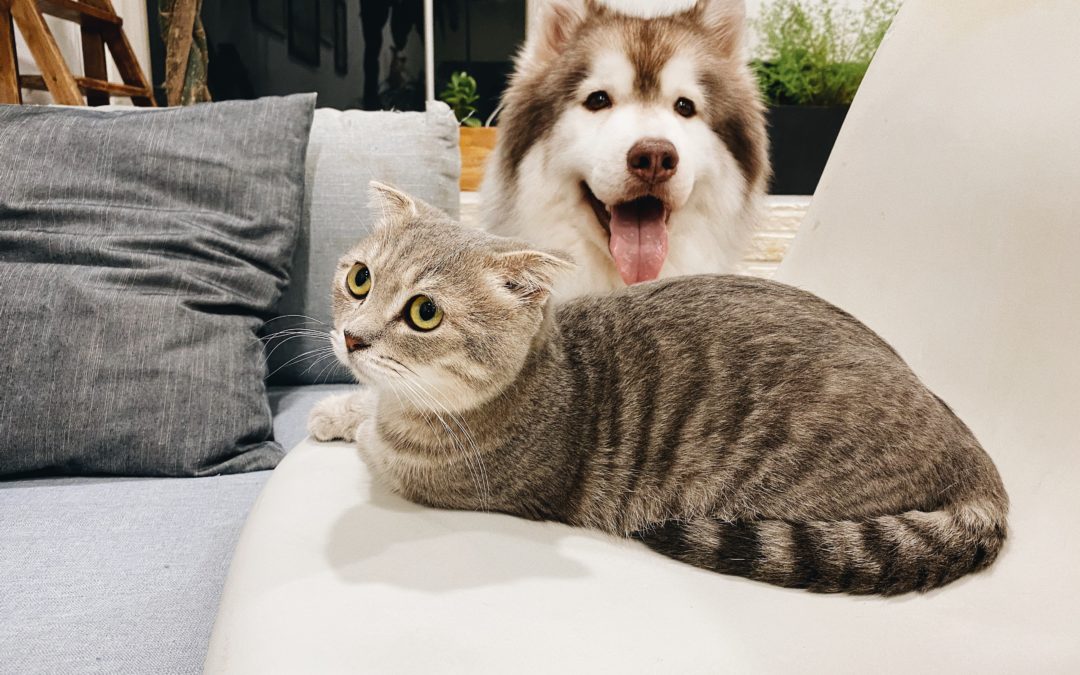September 28th is World Rabies Day. Rabies is a fatal disease caused by a virus that attacks the brain and nervous system of mammals. In the US, wildlife are much more likely to be rabid than domestic animals. However, your pets and other domestic animals can be infected when they are bitten by rabid wild animals. There is no cure for rabies in pets, but the good news is that your pets can be protected from rabies—all it takes is keeping up-to-date with their rabies vaccination.
How do pets get rabies?
Pets most commonly get rabies when they are bitten by an infected animal. Less commonly, rabies can be transmitted through the saliva of an infected animal if it comes into contact with an open cut or sore on your pet. The risk is highest for pets who are exposed to wild animals.
The most common infected wild animals are bats, raccoons, skunks, and foxes. In the United States, cats are infected more than in any other domestic animal. If you have cats, it’s important to make sure they are vaccinated and kept inside.
What are the symptoms of rabies in pets?
Depending where on the body a pet is bitten, it can take 3-12 weeks for symptoms to show. However, once symptoms begin, they are sudden and noticeable, and nearly always fatal. Early symptoms are generally nonspecific and include:
- Lethargy
- Fever
- Vomiting
- Anorexia
As the virus progresses, attacking the nervous system, symptoms worsen (within days). These include:
- Ataxia (lack of muscle control)
- Weakness
- Paralysis
- Seizures
- Difficulty breathing
- Difficulty swallowing
- Excessive salivation
- Abnormal behavior
- Aggression
- Self-mutilation
Preventing Rabies in Pets
Vaccinate. Ensure that all your pets are up-to-date on their rabies vaccination. This is the best way to prevent rabies. And vaccination is required by law.
Even indoor-only pets should be vaccinated, in case they escape. Bats have also been known to come into homes, posing a threat to indoor animals.
The rabies vaccination is very safe—it is a killed vaccine, meaning it contains no live virus strains. While there’s a very small chance your pup or feline could have an adverse reaction to his inoculation, the benefits far outweigh the risks. If your pets are properly vaccinated, they cannot contract rabies.
Being properly vaccinated means receiving regular boosters. Talk to your vet to make sure all of your pets are current on their rabies vaccination. Let us know if you have any questions about the appropriate vaccine schedule for dogs and cats in Arizona.
Prevent contact with wildlife and other unvaccinated pets. Be sure to keep dogs on their leashes, especially when hiking or camping, and keep cats indoors. Don’t attract wildlife into your yard. Keep food sources inside to prevent potentially rabid animals from coming near your pets, and ensure that your trash cans are tightly secured and away from your pets.
Contact Us Today
Rabies is an entirely preventable disease, and with awareness, the number of infected animals is decreasing every year. At Anasazi Animal Clinic in Gilbert, we care about your furry animals, so we’re reminding you to schedule your pets for their rabies vaccinations and regular boosters. Help keep your pets (as well as other animals and people) safe by calling us today.
Photo by Tran Mau Tri Tam on Unsplash

